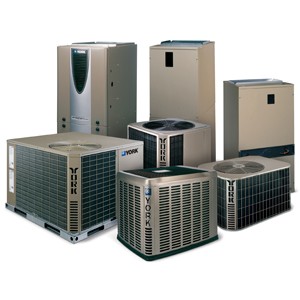HVAC Installation:
HVAC is the common acronym that stands for Heating Ventilation and Air Conditioning. This is the most frequently used term when referring to combination systems that do both heating and cooling.
Signs That an HVAC System Should Be Replaced:
- The heat pump or air conditioner is more than ten years old.
- Consider a replacement unit that has earned the ENERGY STAR label. When installed correctly, these high-efficiency units reduce heating and cooling costs by up to 20%.
- The furnace or boiler is more than 15 years old.
- Consider a replacement unit with an ENERGY STAR qualified furnace, which is 15% more efficient than a conventional furnace.
- If you have a boiler, consider replacing it with an ENERGY STAR qualified boiler, which is 5% more efficient than a new, standard model.
- The HVAC equipment needs frequent repairs, and your energy bills are increasing.
- This is typically a sign that the cooling or heating equipment has become less efficient.
- Some rooms in your home are too hot or too cold.
- This may be the result of improper equipment operation, duct problems, or inadequate insulation.
- The home is left unoccupied most of the day, and the thermostat is not programmable.
- Consider installing a programmable thermostat, to save energy and money while you’re away or asleep.
- The home has humidity problems.
- Summer humidity or excessively dry winter air is often the result of poor equipment operation, inadequate equipment, and leaky ductwork.
- The home is excessively dusty.
- Consider sealing the ducts. Leaky ducts can pull particles and air from attics, crawl spaces, and basements, and distribute them throughout the home.
- The heating or cooling system is noisy.
This could be the result of an undersized duct system or an issue with the indoor coil of the cooling.

Choosing a New HVAC System:
Proper size and installation are critical to air conditioner efficiency. A unit that is too large will not adequately control humidity; conversely, a unit that is too small will not sufficiently cool a home during the summer months. Improper unit location or duct installation, as well as insufficient insulation, may greatly diminish efficiency. Our contractor’s specialists can help you choose the right air conditioner for your home.
It’s important to choose an air conditioner with high efficiency. Central air conditioners are rated according to their SEER (Seasonal Energy Efficiency Rating) is the measure of efficiency. The higher the number the more energy efficient the unit is. Look for a unit with a SEER of 12 or more. Central air conditioners with the ENERGY STAR® label have SEER ratings of 13 or higher; for even greater savings, you may want to consider air conditioning equipment with even higher SEER ratings. Other important air conditioner features include:
- A thermal expansion valve and a high-temperature rating (EER) greater than 11.6, to ensure high-efficiency operation during the summer months.
- A variable-speed air handler for new ventilation systems.
- A unit that operates quietly.
- A fan-only switch, so the unit can be used for night-time ventilation (substantially reducing air-conditioning costs).
- An automatic-delay fan switch, to shut down the fan a few minutes after the compressor.
Give us a call to schedule a FREE ESTIMATE today, contact Air of America at 770-800-3152.
